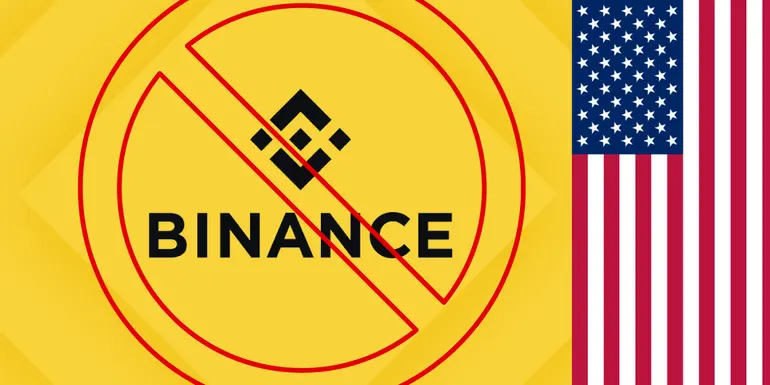The cryptocurrency world has been rife with innovation, volatility, and regulatory scrutiny. One of the most significant recent developments is the ban affecting Binance US, the American arm of the global cryptocurrency exchange Binance. Here, we will delve into the implications of this ban for crypto traders, comparing Binance US vs. Binance and exploring the broader impact on the cryptocurrency market.
Understanding Binance US Vs. Binance
Binance: A Global Powerhouse
Binance, founded in 2017 by Changpeng Zhao, quickly became one of the largest and most influential cryptocurrency exchanges globally. With a comprehensive suite of services, including spot trading, futures trading, staking, and lending, Binance has become a one-stop shop for crypto enthusiasts and professional traders. Its global reach and extensive list of supported cryptocurrencies make it a dominant player in the crypto space.
Binance US: The American Spin-Off
In response to increasing regulatory scrutiny in the United States, Binance launched Binance US in 2019. This platform version was tailored to comply with US regulations, offering a more limited selection of cryptocurrencies and features than its global counterpart. Binance US aimed to provide American traders with a secure and compliant trading environment, albeit with some restrictions.
The Ban on Binance US
What Triggered the Ban?
The recent ban on Binance US culminated in growing regulatory pressures and concerns over compliance with US laws. Regulatory bodies like the Securities and Exchange Commission (SEC) and the Commodity Futures Trading Commission (CFTC) have been tightening their oversight of cryptocurrency exchanges to protect investors and ensure market integrity.
Several factors contributed to the ban, including allegations of insufficient Know Your Customer (KYC) and Anti-Money Laundering (AML) protocols, concerns over market manipulation, and offering unregistered securities. These issues prompted regulatory authorities to take action, resulting in a suspension of operations for Binance US.
Implications for Crypto Traders
Limited Access to Trading
One of the ban’s most immediate impacts is restricted access to trading for US-based crypto enthusiasts. Binance US provides a convenient platform for trading various cryptocurrencies, and its absence leaves traders with fewer options. While other US-based exchanges like Coinbase and Kraken remain operational, they may not offer the same range of features and tokens that Binance US did.
Impact on Liquidity
The ban on Binance US could also affect market liquidity. Despite being smaller than its global counterpart, Binance US contributed significantly to trading volumes. Reduced liquidity can lead to increased price volatility, affecting traders’ ability to execute large orders without causing significant market disruptions.
Regulatory Ripple Effect
The ban on Binance US may signal a broader regulatory crackdown on other cryptocurrency exchanges. This heightened scrutiny could lead to stricter regulations and compliance requirements for all crypto platforms operating in the US. Traders must stay informed about these developments, as they could impact the availability and functionality of their preferred trading platforms.
Binance vs. Binance US: A Comparative Analysis
Range of Services
Binance offers a more extensive range of services than Binance US. While Binance US focuses on spot trading, Binance provides futures trading, margin trading, staking, lending, and more. This diversity of services has made Binance a preferred choice for traders seeking advanced trading options and additional earning opportunities through staking and lending.
Cryptocurrency Selection
One critical difference between Binance US vs. Binance is the selection of supported cryptocurrencies. Binance lists a vast array of tokens, including many lesser-known altcoins. In contrast, Binance US offers a more limited selection to comply with regulatory requirements. The ban on Binance US further narrows the options for American traders, potentially pushing them towards decentralized exchanges (DEXs) or offshore platforms.
Regulatory Compliance
Binance US was designed to comply with US regulations, while Binance operates in multiple jurisdictions with varying regulatory standards. This difference in regulatory environments has significant implications for traders. Binance US’s focus on compliance aimed to provide a safer trading environment for US residents, but the recent ban highlights the challenges of navigating the complex and evolving regulatory landscape.
The Broader Impact on the Crypto Market
Investor Confidence
Regulatory actions, such as the ban on Binance US, can impact investor confidence in the cryptocurrency market. Traders may become more cautious, reducing trading volumes and increasing market volatility. However, some investors may view these regulatory measures as a positive step towards greater market transparency and security.
Innovation and Adaptation
The ban on Binance US may also drive innovation within the cryptocurrency industry. Exchanges and blockchain projects may prioritize regulatory compliance and develop new technologies to meet the evolving requirements. This adaptation could lead to more robust and secure trading platforms, benefiting the entire crypto ecosystem.
Global Regulatory Trends
The situation with Binance US could set a precedent for other countries’ regulatory approaches to cryptocurrency exchanges. As governments worldwide grapple with regulating the rapidly growing crypto market, the actions taken in the US may influence international regulatory frameworks. Traders and exchanges must remain vigilant and adaptable to these global trends.
What’s Next for Crypto Traders?
Diversifying Trading Platforms
In light of the ban on Binance US, traders should consider diversifying their trading platforms. Relying on a single exchange can expose traders to significant risks, especially in a highly regulated environment. Exploring other reputable exchanges and decentralized platforms can provide alternative avenues for trading and investment.
Staying Informed
Keeping abreast of regulatory developments is crucial for crypto traders. Regulatory landscapes constantly evolve, and staying informed can help traders make informed decisions and mitigate risks. Following reputable news sources, participating in industry forums, and engaging with the crypto community can provide valuable insights.
Enhancing Security Practices
The ban on Binance US underscores the importance of security in the cryptocurrency space. Traders should prioritize security measures such as enabling two-factor authentication (2FA), using hardware wallets, and regularly updating their security protocols. Ensuring the safety of assets is paramount in an environment of increasing regulatory scrutiny.
Conclusion
The ban on Binance US represents a significant development in the cryptocurrency market, highlighting the challenges and opportunities presented by regulatory scrutiny. While it poses immediate challenges for US-based traders, it also underscores the need for innovation, adaptation, and vigilance in the rapidly evolving crypto landscape. By understanding the differences between Binance and Binance US, staying informed about regulatory changes, and prioritizing security, crypto traders can navigate this new era with confidence and resilience.






